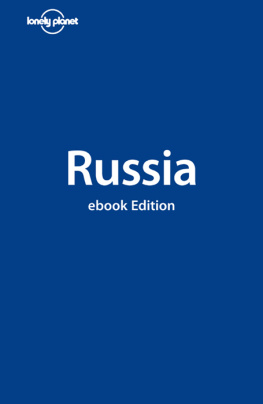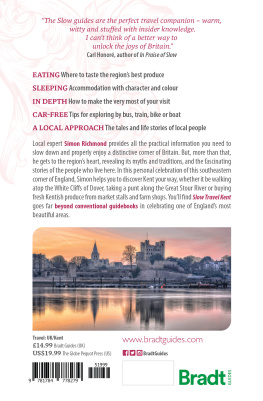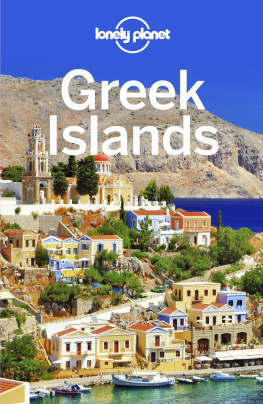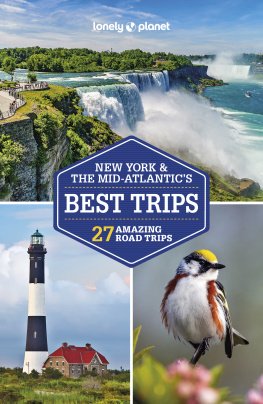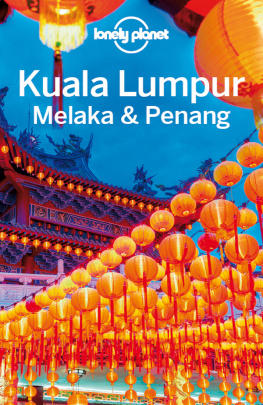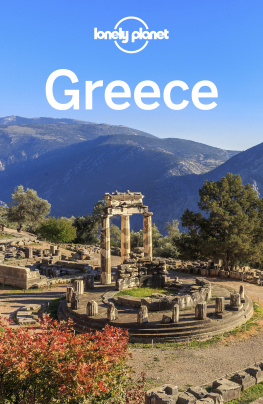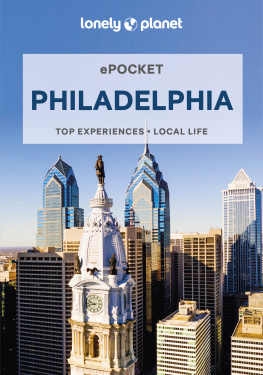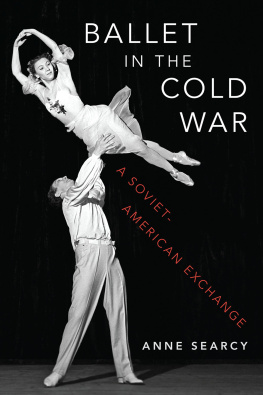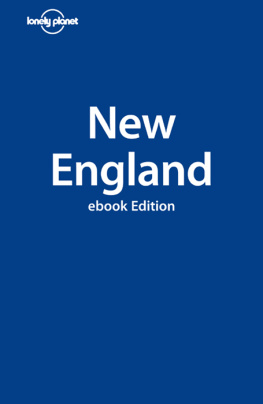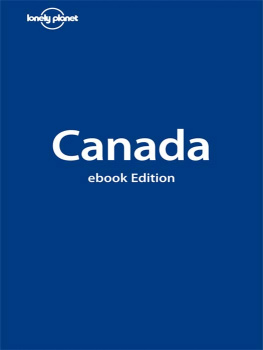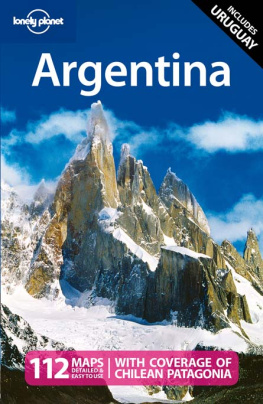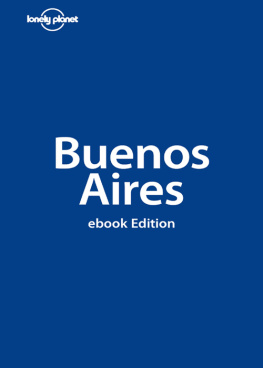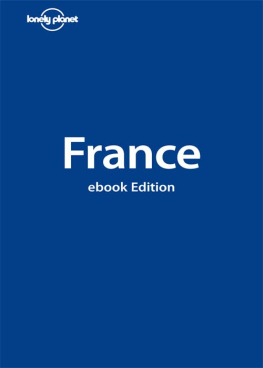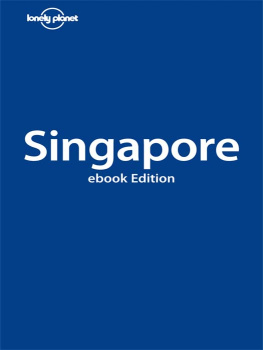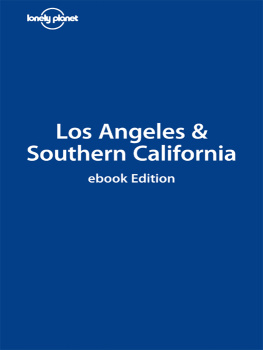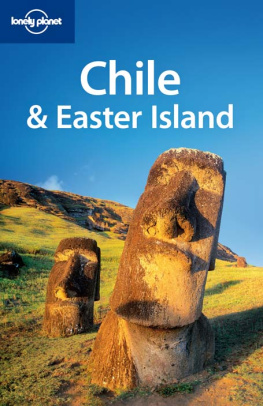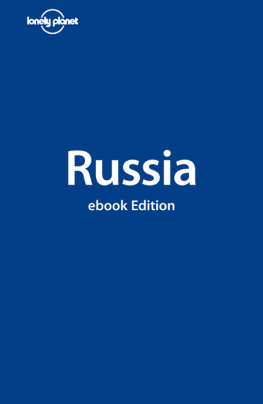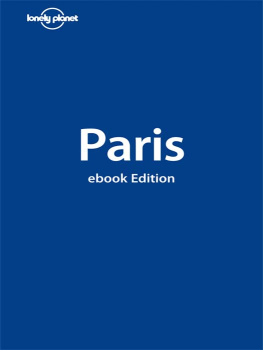Destination Russia
Oh, what a glittering, wondrous infinity of space the world knows nothing of ! Rus!
Nikolai Gogol, Dead Souls (1842)
For centuries the world has wondered what to believe about Russia. The country has been reported variously as a land of unbelievable riches and indescribable poverty, cruel tyrants and great minds, generous hospitality and meddlesome bureaucracy, beautiful ballets and industrial monstrosities, pious faith and unbridled hedonism. These eternal Russian truths coexist in equally diverse landscapes of icy tundra and sun-kissed beaches, dense silver birch and fir forests and deep and mysterious lakes, snow-capped mountains and swaying grasslands those famous steppes. Factor in ancient fortresses, luxurious palaces, swirly spired churches and lost-in-time wooden villages and youll begin to see why Russia is simply amazing.
To get the most from Russia, head way off the beaten track. After taking in old favourites such as dynamic Moscow, historic St Petersburg and beautiful Lake Baikal, dive further and deeper into the largest country in the world. Visit the soft, golden sands of the old Prussian resort of Kranz, now known as Zelenogradsk, in the far western Kaliningrad Region; the charming Volga river village of Gorodets, home to folk artists and honey-cake bakers; fascinating Elista, Europes sole Buddhist enclave and location of the wacky Chess City; the 400-year-old mausoleums of Dargavs, a North Ossetian city of the dead or the hot springs of Kamchatkas Nalychevo Valley in the Russian Far East.
FAST FACTS
Population: 141.4 million
Surface area: 17 million sq km
Time zones: 11
National symbol: double-headed eagle
Extent of the Russian rail network: 87,000km
Gazprom profits in 2007: R658 billion (US$27.8 billion)
Rate of income tax: 13% flat
Number of deaths per year from alcohol poisoning: 40,000
Number of languages spoken (other than Russian): more than 100
Number of Nobel Prize winners: 20
Russias vast geographical distances and cultural differences mean you dont tick off its highlights in the way you might those of a smaller country; the Russian Far East, for example, is the size of Europe. A more sensible approach is to view Russia as a collection of countries, each one deserving exploration. Rather than transiting via Moscow, consider flying direct to a regional centre such as Irkutsk to have an Eastern Siberian vacation, or to Yekaterinburg to explore the Urals mountain range.
If cultural and architectural highlights are what youre after, stick to European Russia, which is all of the country west of the Urals. If you dont mind occasionally roughing it and are in search of Russias great outdoors, train your eye on the vast spaces of Siberia and the Far East. Alternatively, boost your adrenaline on the countrys top ski resorts and raft-friendly rivers. You can also get a birds-eye view of it all from the cockpit of a MiG-25 or even from outer space, as well as unique experiences such as getting a beating in a banya (traditional steam bath).
In the past decade Russia has evolved from the economically jittery, inefficient and disorganised basket case that Vladimir Putin inherited from Boris Yeltsin to a relatively slick petrodollar mover and shaker, the worlds No 1 luxury goods market. Off the back of oil and gas sales, the worlds biggest energy exporter has paid off its debts and stashed away reserves of R3.84 trillion (US$162.5 billion). With the economy growing at an average 7% per year, the National Statistics Agency reported that the average monthly salary rose by 27% in 2007 to R13,500 (US$550) and that unemployment was down to 6%. According to Forbes magazine in 2007, 19 of the 100 richest people in the world were Russians, while the countrys tally of 87 US$ billionaires makes it second only to the US. Lenin is surely spinning in his mausoleum!
The global financial turmoil of late 2008 may have put a significant dent in their bank balances, but it remains true that the lyux life enjoyed by the likes of aluminium mogul Oleg Deripaska or Roman Abramovich might as well be on an different planet from that of the 20 million or so Russians who subsist on less than R4500 a month. Luxury is hardly common to the growing Russian middle class, either, who nevertheless enjoy lives undreamed of by the vast majority of Soviet citizens less than two decades ago. Under such circumstances they have supported Putin and continue to support his successor Dmitry Medvedev, at the same time as gritting their teeth and tightening their purses to deal with steadily rising inflation, counted at 15% in the year to May 2008.
With no credible opponent, Medvedevs election to president in March 2008 was never in doubt, the only intangibles being how big his majority might be (71.25%) and how many Russians would bother to vote at all (73.73 million). Non-Russian observers worried about how democratic the outcome really was, and fretted even more in August of the same year when Russia came to blows with Georgia over the breakaway regions of Abkhazia and South Ossetia.
While the controversy inevitably stirred up extreme reactions, a more sober analysis would have that Russia however heavy-handedly is fumbling to find a way to deal with its sense of encirclement by NATO-leaning neighbours, such as Georgia, Ukraine and the Baltic States, who were once part of its sphere of influence and whose borders continue to harbour Russian nationals. While claiming to not want to defy the international community, Medvedev has said, We are not afraid of anything, including the prospect of a new Cold War.
Under such circumstances you may be understandably wary about visiting Russia. It would be a lie to say that travel here is all plain sailing. On the contrary, for all the welcome that its people will show you once youre there, Russias initial face can be frosty. Tolerating bureaucracy, an insidious level of corruption and some discomfort, particularly away from the booming urban centres, remains an integral part of the whole Russian travel experience. However, a small degree of perseverance will be amply rewarded.
In 1978, in his commencement address at Harvard, Aleksandr Solzhenitsyn talked about Russias ancient, deeply rooted autonomous culturefull of riddles and surprises to Western thinking. From the power machinations of the Kremlin and a resurgent Russian Orthodox Church to the compelling beauty of its arts and the quixotic nature of its people, whose moods tumble between melancholy, indifference and exuberance in the blink of an eye, Russia remains its own unique and fascinating creation that everyone should see for themselves.
Getting Started
WHEN TO GO
Early summer and autumn are many peoples favourite periods for visiting Russia. By May the snow has usually disappeared and temperatures are pleasant, while the golden autumnal colours of September and early October can be stunning.
July and August are the warmest months and the main holiday season for both foreigners and Russians (which means that securing train tickets at short notice can be tricky). Theyre also the dampest months in much of European Russia, with as many as one rainy day in three. In rural parts of Siberia and the Russian Far East, May and June are peak danger periods for encephalitis-carrying ticks, though June and July are worse for biting insects. By September the air has cleared of mosquitoes.
Winter brings the Russia of popular imagination to life. If youre prepared for it, travel in this season is recommended: the snow makes every-thing picturesque, and the insides of buildings are kept warm. Avoid, however, the first snows (usually in late October) and the spring thaw (March and April), which turn everything to slush and mud.

